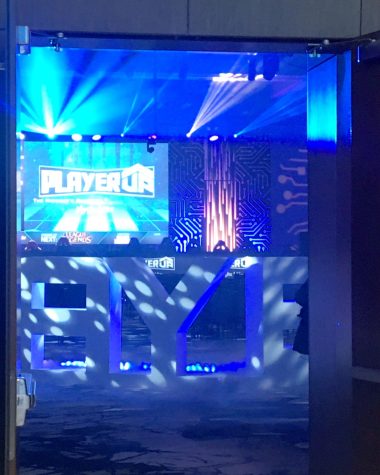The defunct club of the future
Competitive online gaming was ironically halted at Hamline when in-person events were no longer possible, effectively shutting down the eSports club on campus. As the founding members are days away from graduation, the fate of the club is left in the hands of underclassmen.
May 4, 2022

Among many extracurriculars and clubs Hamline has yet to see brought back in full-swing, the eSports club was less than a year old when it was evaporated due to the switch to remote learning in early 2020. However, many hope that this will not be the permanent end to eSports, but rather a lengthy pause.
The term eSports is a relatively new concept and Hamline, back in 2018, was ahead of the curve in their attempt to incorporate this new world of gaming into the campus culture.
“I’m not an authority on the technical/official definition of esports, but essentially it’s electronic sports (no one calls it that) or competitive online gaming. We are all familiar to some extent with video games, esports is an organized competitive version of that.” John Guetter, Campus Rec Program Director, said in an email.
Some of the games that were the most popular to be played among this crowd included Call of Duty, League of Legends, Super Smash Bros. and a less-than-year-old version of Fortnite.
The founders of the club are recognized to be alumni Evan Nelson and graduating senior Summer Carleton. They both worked with Guetter to develop the idea of an eSports club into a fully realized campus activity.
“The whole goal of the [eSports] group was to develop teams on campus that could compete in legitimate collegiate tournaments. There’s all sorts of collegiate leagues for just about anything you can think of with both in-person and online tournaments. But making teams is easier said than done, and even when you got enough players to figure something out, the university was a major deterrent,” Carleton said in an email.
While the COVID-19 pandemic was a major force in the permanent pause that eSports seems to be on, there were a number of internal issues that slowed the progress of the club’s development in the first place.
“The major deterrent for me personally, and the ultimate reason why I left the org, was Hamline University itself. The lack of communication and support was outrageous. Time and time again we were left with unanswered questions, and not for a lack of trying; John Guetter tried to push and push the university constantly on different issues only to mostly get a shrug or an outright shutdown that set our org back exponentially.” Carleton said in an email.
One of the major points of contention were the ways in which the players in the club would get paid for their efforts in tournaments. Some other colleges with eSports teams give scholarships as incentives to play for the team in lieu of the cash prizes that come with winning in a tournament. However, due to Hamline’s nonprofit status, the disbursement of prizes or even scholarships seemed to be impossible to achieve.
“… you could spend hundreds of hours perfecting every aspect of the game, beat out dozens upon dozens of other schools over an entire season of matches… but not be able to reap any of the benefits you worked for. What’s the point in competing, then?” Carleton said in an email.
Guetter is more positive about the possibilities that eSports could bring to the campus culture.
“[eSports] provides a great opportunity for recruitment and retention of students at Hamline. Many Universities are offering varsity programs with coaches, scholarships, dedicated facilities, and comprehensive programs that incorporate more than just the gamers themselves.” Guetter said in an email.
The club was not only centered around tournament competition for everyone. For many students, eSports was another opportunity to connect with like-minded people on campus.
“Originally we started off as less focused on competitive and more focused on, in general, meeting people because that’s how you start a club like that,” senior Will Deery said.
Deery was one of the few people to attend the only in-person tournament that Hamline sponsored for the club. The players were reimbursed for gas and Hamline paid the admission fee, but other than that, each person brought their own headset and console and they had to buy the game they wanted to play.
While progress to the revival of the club has been next to nonexistent, many believe it is not impossible.
“We have great equipment and a dedicated space (although small). What we’re lacking is a coach/dedicated staff member with the knowledge and skills to help lead a college esports team.” Guetter said in an email.
Students who would like to get involved in bringing eSports back to campus can reach out to John Guetter in the following semester. The future of competitive gaming is slipping through the student population’s fingers, but with the right support, there is no reason why the Hamline eSports team could not become reality.
